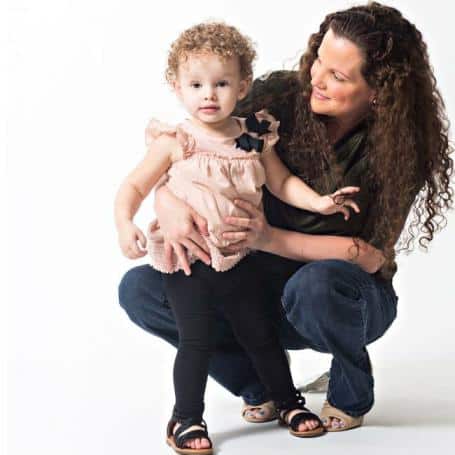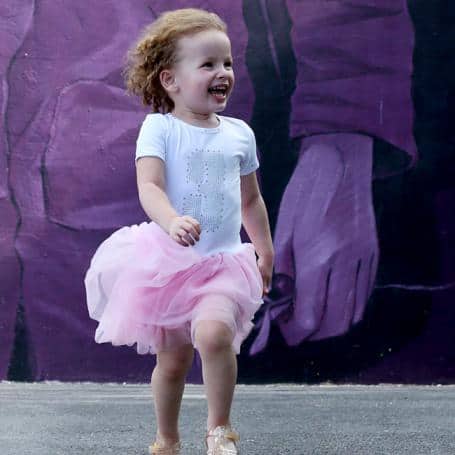From Perfect to Miraculous: Biliary Atresia Makes This Baby a Mentor

She’s only a little over three years old. But Deanna Lynn Anderson may be the world’s youngest mentor, according to her mom, Heidi.
This little one was diagnosed at three months old with Biliary Atresia – a rare, life-threatening condition in infants in which bile ducts inside or outside the liver don’t have normal openings. At four and a half months she was listed for a liver transplant. At seven months she received one.
Heidi calls the journey a roller coaster. “On the day Deanna was born, we really did say – ‘she’s perfect!’” But not even out of the hospital, jaundice set in, and Deanna went home with “the famous bili-blanket.” Mom and Dad lovingly joked that Deanna looked like a glow-worm on that bright blanket.
The baby seemed to get better, but a visit from a relative – a pediatrician – changed the story again, when she wondered about Deanna’s yellow skin.
The pediatric checkup that followed had answers and strange, haunting words: “Biliary Atresia.”
“I didn’t know what the words meant, but I knew they weren’t good.”
Frantically, Heidi and her mother started googling. But websites couldn’t prepare them for the future. Ensuing tests and failed treatments culminated in a doctor’s visit during where they learned Deanna needed a liver transplant. “The family dissolved in tears in the doctor’s office.” Their questions seemed endless:
Where would the liver donor come from? How much time did they have? How could a little one who seemed so sick ever recover?

Answers appeared in the years that followed – as treatments, hospital stays, setbacks and gains. The Andersons are forever grateful to their organ donor family – the parents of a 23-year-old son. Heidi knows she “can’t thank them enough.”
Today Deanna is generally healthy and always active. (“She loves to dance. She loves school!”). But on the brink of turning four, this little girl has weathered most holidays in the hospital and battles transplant side effects. Throughout, “she’s perfect – a perfect fighter. She walks into labs with a smile. She’s so joyful. I look up to her.”
Others look up to Heidi and her husband, Eric, who work full time but still manage to share their story. “We believe families need to be aware and to know there’s a support system,” Heidi notes, “so along with other BA families, we’ve developed a mutual support group.” She’s also turned to social media to spread the word about the need for organ donors.
She also likes to “Spread the awe. Not everyone gets this gift. Some kids never get off the transplant waiting list. If you’re a donor family, share your story. You could change lives.” She pauses and corrects herself: “You could inspire people, and that can save lives.”
The family’s efforts have worked in obvious and subtle ways. Yesterday a coworker once opposed to organ donation walked up to Heidi on a break. Triumphantly presenting the license he’d just renewed, he asked her to read the card out loud: “Organ Donor.”
So as much as it was correct to call Deanna “perfect” from day one, Heidi says there’s now a more accurate description: “now we know she’s a miracle.”
Last updated on July 12th, 2022 at 12:54 pm